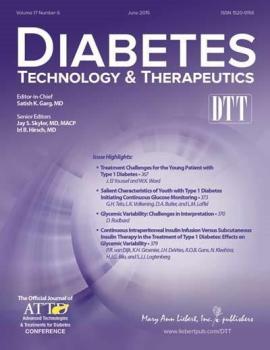Jun 8 2015
In silico experiments demonstrate that advanced sensor and software technology that improves the accuracy of Continuous Glucose Monitoring (CGM) can enable better detection of dangerously low blood sugar and reduced frequency of hypoglycemic episodes.
 Diabetes Technology & Therapeutics (DTT) is a monthly peer-reviewed journal that covers new technology and new products for the treatment, monitoring, diagnosis, and prevention of diabetes and its complications.
Diabetes Technology & Therapeutics (DTT) is a monthly peer-reviewed journal that covers new technology and new products for the treatment, monitoring, diagnosis, and prevention of diabetes and its complications.
The significance of this direct relationship between the accuracy of CGM and a reduction in hypoglycemia is explored in a Commentary published in Diabetes Technology & Therapeutics (DTT), a peer-reviewed journal from Mary Ann Liebert, Inc., publishers. The article is available free on the DTT website until July 5, 2015.
Boris P. Kovatchev, PhD, University of Virginia Center for Diabetes Technology, Charlottesville, describes the results of in silico experiments his group performed to model and simulate the effect of glucose sensor error on glycemic control. The computer simulations used real data derived from studies of the original Dexcom G4 Platinum CGM system and the newer G4 Platinum with software version 505. The data provided a measure of the accuracy of the sensor in the hypoglycemic range. Dr. Kovatchev discusses the implications of the findings for continued adoption and future development of CGM in "Hypoglycemia Reduction and Accuracy of Continuous Glucose Monitoring."
"Accuracy of continuous glucose monitors is important especially for early detection of hypoglycemia and reliable closed-loop systems," says DTT Editor-in-Chief Satish Garg, MD, Professor of Medicine and Pediatrics at the University of Colorado Denver.